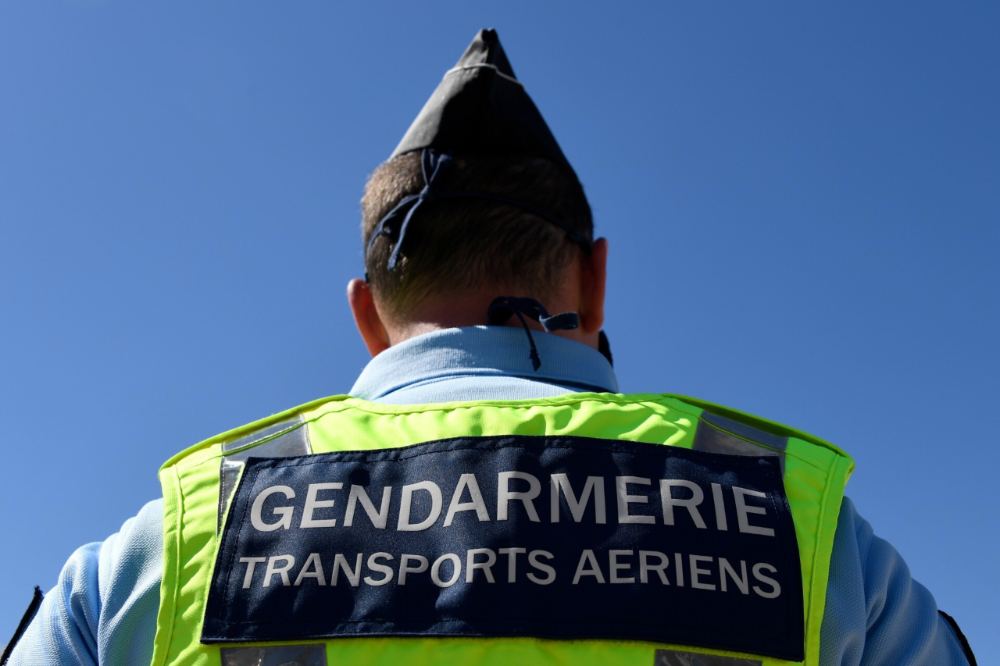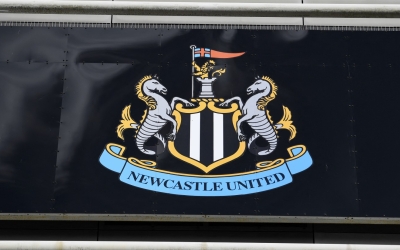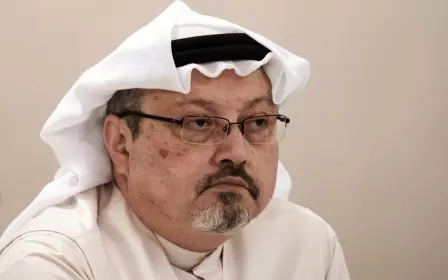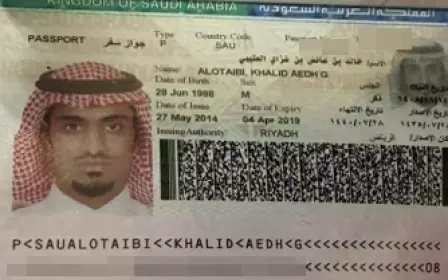Khashoggi: Saudi man arrested over journalist's murder released by France

A Saudi man arrested in Paris in connection with the 2018 murder of journalist Jamal Khashoggi has been released, French prosecutors said on Wednesday.
"In-depth verifications to determine the identity of this person have enabled us to establish that the warrant was not applicable to him," the chief prosecutor in Paris said in a statement, referring to an international arrest warrant issued by Turkey.
A source familiar with the Khashoggi investigation, however, told Middle East Eye that the detained man was carrying a passport whose details, including the number, matched one belonging to Khaled Aedh al-Otaibi, a suspect in the journalist’s killing in 2018.
Saudi officials maintained that France had the wrong man and had called for Otaibi to be released immediately.
The incident comes days after French President Emmanuel Macron met Crown Prince Mohammed bin Salman in Saudi Arabia, the first western leader to meet with the de facto Saudi ruler since Khashoggi’s murder.
Mohammed bin Salman was accused by the US intelligence services of directing the Khashoggi assassination operation, a charge he denies.
The arrest also came at an awkward moment for Ankara and Riyadh. Turkish relations with Saudi Arabia have warmed in recent months, after years of animosity.
Khashoggi, a Middle East Eye and Washington Post columnist, was killed in Saudi Arabia’s Istanbul consulate in October 2018 after he entered the premises to obtain paperwork for his planned marriage to his Turkish fiancee, Hatice Cengiz. His remains have never been found.
A man named Khaled al-Otaibi is among a group of 18 Saudis who was identified in a declassified US intelligence assessment as being responsible for the murder.
A 2019 UN report into the murder found that Otaibi, a member of the Saudi Royal Guard, was inside the Saudi consulate in Turkey during the killing. He was seen accompanying Mohammed bin Salman during a trip to the United States in 2017, the report said.
Last year, a Saudi court jailed eight people for between seven and 20 years over the killing, but none of the defendants were publicly named. A security source told AFP that the Otaibi identified by the US and UN is currently in a Saudi prison along with “all the defendants in the case”.
An Istanbul court is trying 26 Saudis, including one named Khaled Aedh al-Otaibi, in absentia over the Khashoggi murder. MEE understands that the court has formally requested the names of the Saudi suspects who had been tried and convicted.
It is unclear why these names were requested, but it is possible that Ankara could argue that in the case of the eight convicted suspects, justice has already been served.
Impact on Turkish-Saudi detente
Turkish officials were reluctant to speak publicly before Turkish President Recep Tayyip Erdogan had done so. However, sources close to the Turkish government speculated on Wednesday that the events in Paris could have a significant impact on the Turkish-Saudi detente.
“Turkey has found a great chance for playing the Otaibi card as a leverage against [Mohammed bin Salman]," said a source who has followed the Khashoggi case from the beginning. "Now, Ankara can tell Riyadh: ‘Let’s leave it behind, close the Khashoggi case and put all the blame on this man.’ In this way, both sides will have the opportunity to look ahead.”
'France tries to undermine Turkey’s chance to ameliorate its relations with the Saudis. But this will backfire'
- Source following Khashoggi case
The same source also said that France had launched an operation to locate and arrest Otaibi, who he said was already present in the country. MEE was unable to confirm this with French authorities.
A second source, who has also been following the judicial and police side of the murder case, was more sceptical about the timing of this arrest.
"France tries to undermine Turkey’s chance to ameliorate its relations with the Saudis. But this will backfire, as Turkey is reluctant to push forward with this case and look for new economic opportunities amid its currency crises," he said.
He added that the Turkish government’s silence is an indicator that Ankara doesn’t want to bring the case to the fore again.
Yusuf Selman Inanc contributed to this story.
Middle East Eye delivers independent and unrivalled coverage and analysis of the Middle East, North Africa and beyond. To learn more about republishing this content and the associated fees, please fill out this form. More about MEE can be found here.





